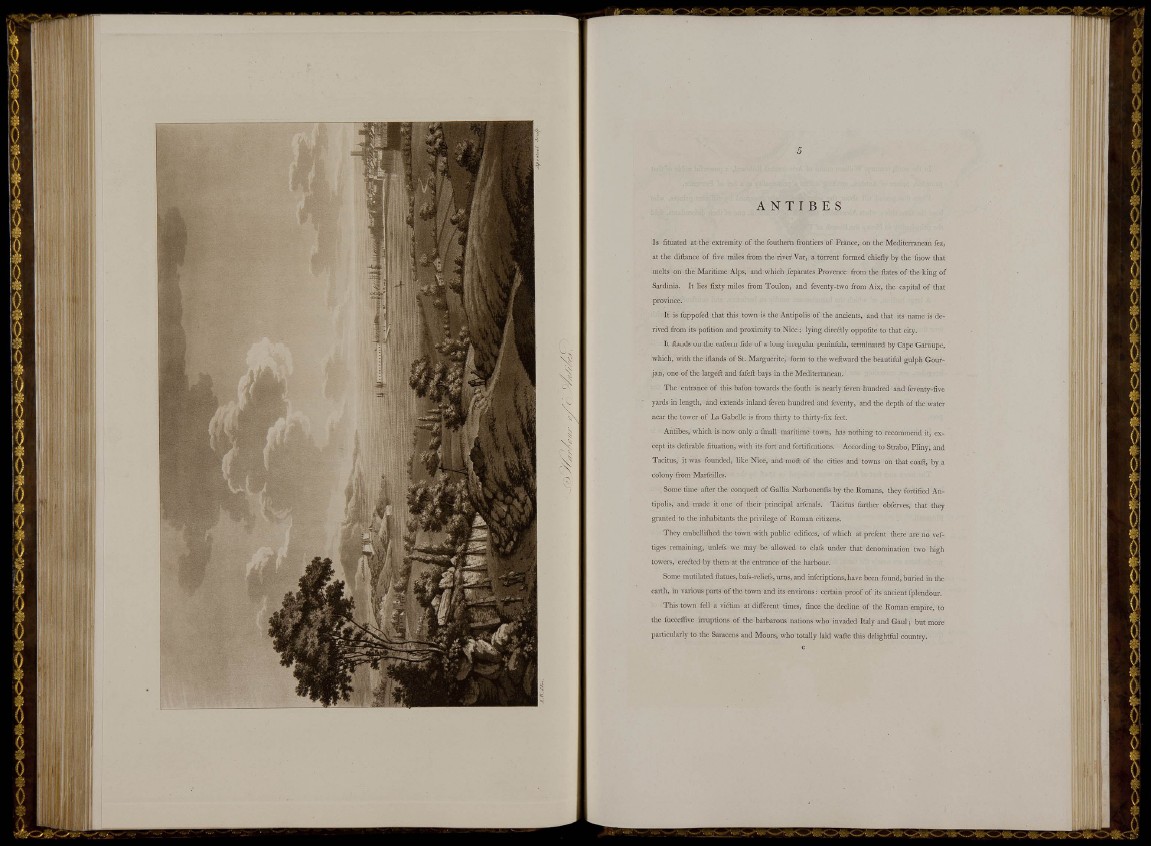
A N T I B E s
Is fîtuated at the extremity of the fouthem frontiers of France, on the Mediterranean fea,
at tlie diflance of five miJcs firora the river Var, a torrent formed chiefly by tlie ihow lliat
melts on the Maritime Alps, and which leparates Provence fi-om the flates of the Icing of
Sardinia. It lies fixty miles from Toulon, and feventy-two from Aix, the capital of that
province.
It is fuppofed that tliis town is the Antipolis of the ancieuts, and that its name is tlerived
from its poiition and proximity to Nice ; lying dircñly oppofite to that city.
It ftands on the eaftem fide of a long irregular peninfula, terminated by Cape Garoupc,
which, with the iilands of St. Marguerite, form to the weilward the beautiful gulph Gourjan,
one of the largeft and fafefl bays in the Mediterranean.
The entrance of this bafon towards the fouth is nearly feven hundred and fcventy-five
yards in length, and extends inland feven himdred and feveiit}', and the depth of the water
the tower of La Gabelle is from thirty to thirty-fix feet.
Antibes, which is now only a fmall marithrie town, has nothing to recommend it, except
its dcfirable fituation, with its fort and fortifications. According to Strabo, Pliny, and
Tacitus, it -was founded, like Nice, and moft of the cities and towns on that coail, by a
colony from Marfeilles.
Some time after the coiiquell of Gallia Narbonenfis by the Romans, they fortified Antipolis,
and made it one of their principal aifenals. Tacitus farther obferves, that they
gi-anted to the inhabitants the privilege of Roman citizens.
They cmbelliflied the town witli public edifices, of which at prcfent there arc no veltiges
remaining, unlefs we may be allowed to clafs undei- that denomination two high
towers, creéted by them at the entrance of the harbour.
Some mutilated ñames, bafs-relieft, urns, and infcriptions, have been found, buried in the
earth, in various parts of the town and its environs : certain proof of its ancient fplendour.
This town fell a viétim at different times, fince the decline of die Roman empire, to
the fucc-effive krupûons of the barbarous nations who invaded Italy and Gaul ; but more
particularly to the Saracens and Moore, who totally laid wafte this delightful country.